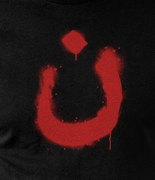Reading Hebrews 13:3 with Mosul in Mind
Today we share an excerpt from a post by Pastor Eric Foley, VOM’s project partner for North Korea, the CEO of Seoul-USA, and a regular speaker at VOM Regional Conferences. In his post Pastor Foley provides a careful and thoughtful exegesis of Hebrews 13:3 in light of the current situation that Christians are facing in Mosul under the domination or Islamic State (IS).
After sharing a careful look at the language of the verse and the challenge it presents (what does it really mean to “remember those in prison”?),and through his unique perspective as one intimately connected to our brothers and sisters facing equally-intense persecution inside North Korea, Pastor Foley ends with a very clear challenge to American believers:
What if, as we mourned the Christians of Mosul and followed their plight on the news, Jesus turned to us and said,
“Christians in the ‘free’ world, do not weep for the Christians of Mosul; weep for yourselves and for your children. For the time will come when you will say, ‘Blessed are the Christians who were warned before they were evicted, given the chance to escape before they were put to death!’
 This does not in any way absolve us of prayers, tears, and advocacy on their behalf. After all, Jesus wasn’t shooing the women away. He was calling them to think even more deeply. And when we think even more deeply and scripturally we begin to recognize that prisoners of faith are not an aberration to be remedied by our advocacy and relieved by our gifts, as much as those actions are important. No, prisoners of faith are a regular and permanent feature of Christianity–a reminder until he comes again of the difficulties Christ promised would be attendant to all who follow him. We really are Nazarenes, in a way deeper than we can imagine.
This does not in any way absolve us of prayers, tears, and advocacy on their behalf. After all, Jesus wasn’t shooing the women away. He was calling them to think even more deeply. And when we think even more deeply and scripturally we begin to recognize that prisoners of faith are not an aberration to be remedied by our advocacy and relieved by our gifts, as much as those actions are important. No, prisoners of faith are a regular and permanent feature of Christianity–a reminder until he comes again of the difficulties Christ promised would be attendant to all who follow him. We really are Nazarenes, in a way deeper than we can imagine.
And interestingly, Nazarenes and other persecuted Christians are in their harrowing situations for the same reason he was in that situation: Because it turns out that Christianity really is a threat to Islam, a threat to the existing world order, and a threat to many aspects of the “American way of life” as well. Even if we generally mind our own business and carry out the commands of Christ in small and faithful ways that would seem to hurt no one, we should not be surprised when our countrymen turn on us as well one day, just as the countrymen of the Christians of Mosul are turning on them now. Trouble, says Jesus, is what you have in store when you follow me.
If this is true, then how are we to respond today to the situation facing the Christians in Mosul? Pray, yes. Give, yes. Advocate, yes. Cry, yes. But something more, deeper, and costlier is called for here than only our tears, our advocacy, and our material aid, and–yes–our Facebook posts.
What is called for is a decision to voluntarily take up the cross in our own nation and neighborhood, while the wood is still green.
If you wonder what that would look like in your own life, you are not alone. I am renewing my own quest for an answer. Fortunately the author of Hebrews actually goes on to explain in detail to us some of the consequences of identifying with the Nazarene (and the Nazarenes) that we are likely to encounter. He says this identification will impact every dimension of our existence, from our marriages (13:4) to our Christmas wish lists (13:5) to our diets (13:9) to the people with whom we voluntarily associate (and “friend” on Facebook) and the places we frequent (13:13). But I’ll let you read those verses for yourself.
Just don’t say I didn’t warn you.
CLICK HERE to read Pastor Foley's entire post, "A Careful Exegesis of Hebrews 13:3, With Mosul In Mind." Thank you, Rev. Foley, for granting permission for us to excerpt it here.